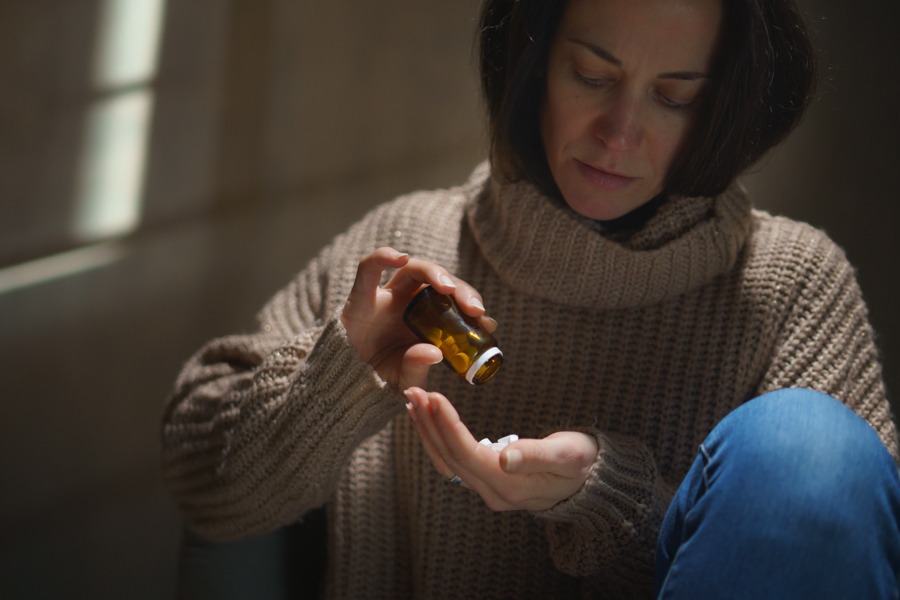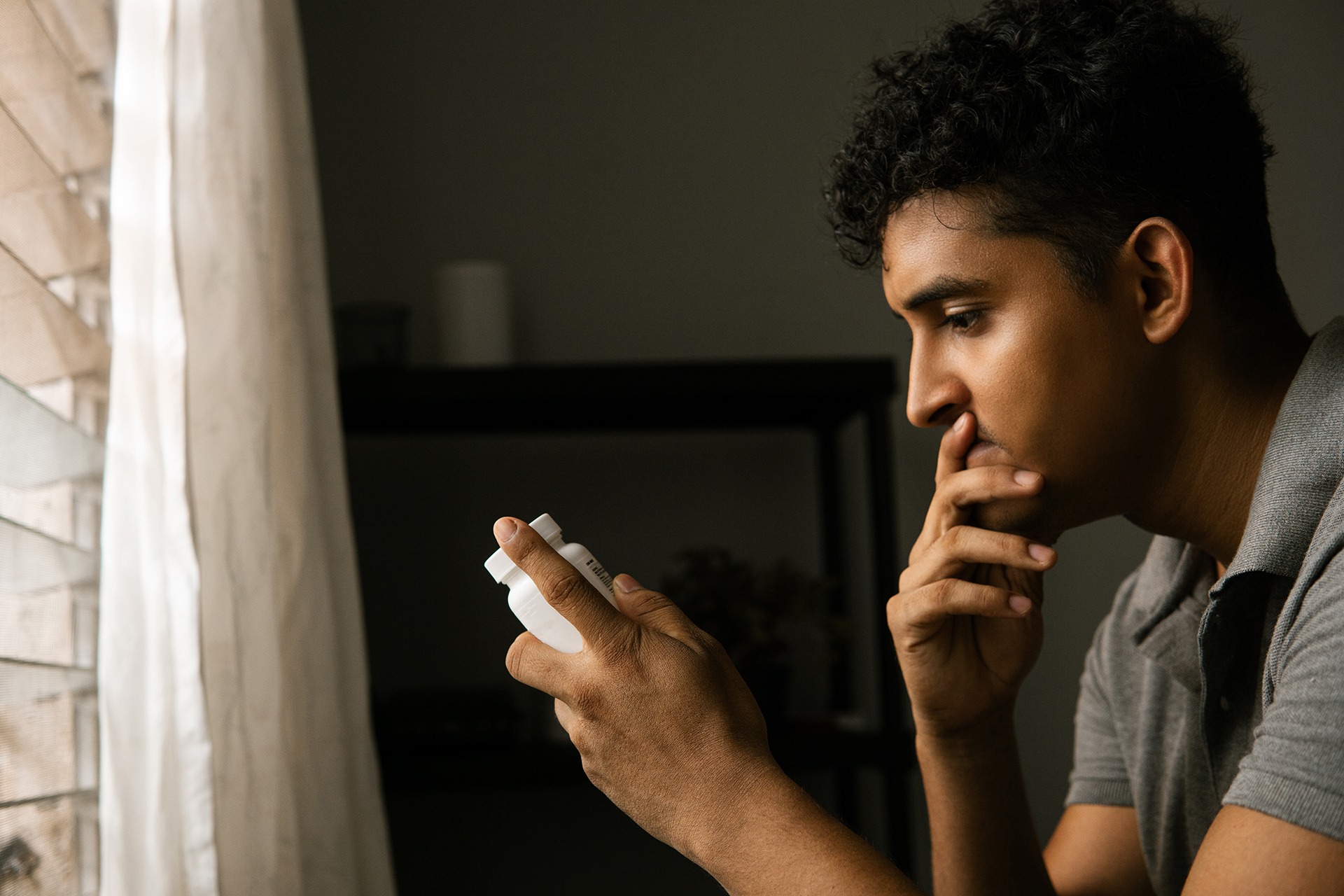Self-medicating is the use of drugs, alcohol, or other substances to cope with physical or emotional pain. It is a harmful behavior that can lead to addiction and numerous negative consequences. While it may seem like an easy solution at the moment, self-medicating does not address the root cause of the issue and can ultimately worsen one’s mental and physical health.
If you have been self-medicating, it is important to take steps towards stopping this behavior and finding healthier coping mechanisms. In this guide, we will discuss some strategies to stop self-medicating. Free by the Sea can assist those struggling with self-medicating in Washington.
Understand Your Triggers
Jump to Section

The first step in stopping self-medicating is to understand what triggers your desire to use substances. It could be a certain emotion, situation, or even people that make you turn to self-medication. Identifying these triggers can help you better prepare and avoid them in the future.
Keep a journal and track when you feel the urge to self-medicate. This can give you insight into patterns and underlying issues that may need to be addressed.
Seek Professional Help
Self-medicating is often a sign of deeper emotional or mental health issues that need professional attention. Seeking therapy or counseling can help you address these underlying problems and learn healthier coping mechanisms.
A therapist can also help you create a personalized plan to stop self-medicating and provide support along the way. They can also recommend medication, if necessary, to manage any underlying mental health conditions that may be contributing to your self-medicating behavior.
Build a Support System
Having a strong support system can make all the difference in overcoming self-medication. Surround yourself with people who understand your struggles and are willing to offer non-judgmental support and encouragement.
Joining a support group or attending meetings such as Alcoholics Anonymous or Narcotics Anonymous can also provide a sense of community and accountability. Being able to share your experiences with others going through similar struggles can be a source of comfort and motivation to stay on track.
Practice Self-Care
Self-medicating is often used as a way to cope with physical or emotional pain. However, there are healthier ways to manage these issues. Practicing self-care activities such as exercise, meditation, yoga, or engaging in hobbies can help reduce stress and improve overall well-being.
It is also important to prioritize your mental health by getting enough sleep, eating well-balanced meals, and seeking professional help when needed. By taking care of yourself physically and mentally, the urge to self-medicate decreases.
Find Alternative Coping Mechanisms
Instead of turning to substances, it is important to find healthier ways to cope with difficult emotions and situations. This could include talking to a trusted friend or family member, journaling, creating art, going for a walk, or engaging in a favorite hobby.
Finding what works best for you may take some trial and error, but it is important to keep trying and not give up. Remember that self-medicating may provide temporary relief, but finding healthy coping mechanisms can lead to long-term benefits for your overall well-being.
Celebrate Your Progress
Recovering from self-medication is a journey and it is important to celebrate small victories along the way. Recognize and acknowledge when you have successfully resisted the urge to self-medicate or have used healthy coping mechanisms instead.
It is also important to be patient with yourself and not beat yourself up if you slip up. Recovery is not a linear process, and setbacks may happen. What matters is that you continue to make progress towards a healthier and happier life.
What is self-medicating?
Self-medicating is the use of drugs, alcohol, or other substances to alleviate symptoms of physical or emotional distress. It can involve using over-the-counter medications, prescription drugs, illegal substances, or even food and caffeine.
People often turn to self-medicating as a way to cope with stress, anxiety, depression, chronic pain, and other mental health issues. While it may provide temporary relief, it can also lead to addiction and further exacerbate existing problems.
Why do people self-medicate?
There are various reasons why someone may turn to self-medicating. Some common factors include:
- Lack of access to proper healthcare: In some cases, individuals may not have access to medical treatment or therapy for their physical or mental health issues. As a result, they resort to self-medication as a way to manage their symptoms.
- Cultural or societal influences: Certain cultures or social groups may glamorize substance use and promote it as a means of coping with stress or emotional distress.
- Past trauma: Individuals who have experienced trauma in their past may turn to self-medicating as a way to numb painful emotions.
- Genetics: Some people may have a genetic predisposition towards addiction, making them more vulnerable to self-medicating.
No matter the reason, it is important to recognize that self-medicating is an unhealthy coping mechanism and seek help in addressing the underlying issues.
What are forms of self-medication?
As mentioned earlier, self-medication can take various forms, including:
- Substance use: This includes the misuse of drugs, alcohol, or other substances to self-medicate.
- Food and caffeine: In some cases, people may turn to food or excessive amounts of caffeine as a way to cope with stress or emotional pain.
- Over-the-counter medications: While they may be easily accessible and seem harmless, using them without proper medical guidance and for prolonged periods can negatively affect one’s health.
What are the signs of self-medicating?
If you are concerned that you or someone you know may be self-medicating, here are some common signs to look out for:
- Increasing tolerance: Over time, individuals may need higher doses of the substance they are using to achieve the same effect.
- Withdrawal symptoms: When someone stops using the substance, they may experience physical and psychological symptoms such as headaches, anxiety, irritability, and nausea.
- Neglecting responsibilities: Self-medicating can often lead to neglecting important responsibilities at work, school, or personal relationships.
- Using substances in dangerous situations: People who self-medicate may use drugs or alcohol while driving, operating machinery, or engaging in other risky activities.
If you or someone you know is exhibiting these signs, it is crucial to seek help and address the issue before it escalates further. Remember, recovery is possible; seeking support is a sign of strength. Take care of yourself and prioritize your well-being as you work towards a healthier and happier life. With determination and support, you can overcome self-medicating and find healthier ways to manage difficult emotions and situations. Keep moving forward on your journey towards recovery.
What are the dangers of self-medication?
Self-medication can have serious consequences for one’s physical and mental health. Some of the dangers include:
- Addiction: The use of drugs, alcohol, or other substances as a means of coping can lead to dependence and addiction.
- Masking underlying issues: By self-medicating, individuals are not addressing the root cause of their pain or distress. This can prevent them from seeking proper treatment and resolving the issue.
- Health complications: Misuse or overuse of medications can result in adverse side effects and potentially harm one’s health in the long run.
- Interactions with other medications: When self-medicating, there is a risk of interactions between different substances or with prescribed medication that can have harmful effects.
It’s important to seek help and address self-medication before it leads to serious consequences. Remember that seeking professional support is not a sign of weakness, but a courageous step towards healing and recovery. Free by the Sea can help you with your addiction recovery.
How to help someone who is self-medicating?
If you suspect that a loved one may be self-medicating, here are some ways to offer support and help them seek proper treatment:
- Express your concern: Talk to the person in a non-judgmental manner and express your concerns about their behavior. Let them know that you care about their well-being.
- Educate yourself: Learn more about self-medication and addiction so that you can better understand what your loved one may be going through.
- Encourage seeking professional help: Suggest seeking help from a healthcare professional or therapist who can provide proper treatment for the underlying issues.
- Be patient and supportive: Recovery takes time, so it is important to be patient and offer your support throughout the process.
Let your loved one know that they are not alone and that you are there to support them. Remember, overcoming self-medication is a journey, and it may involve setbacks. But with love, understanding, and support, recovery is possible.
Encourage your loved one to seek help and take care of yourself during this challenging time. Together, you can overcome self-medicating and find healthier ways to cope with life’s challenges. So don’t give up hope – there is always light at the end of the tunnel when we seek help and support in our darkest moments.
Free by the Sea can help those who are self-medicating to overcome

Free by the Sea is a rehabilitation center that provides comprehensive treatment for substance abuse and mental health disorders. Our team of experienced professionals offers individualized care and support to help individuals address their underlying issues and develop healthy coping mechanisms. We believe that everyone deserves a chance at recovery, and we are committed to supporting our clients through every step of their journey.
Our compassionate team is here to guide you toward a healthier and happier life free from self-medicating behaviors. Remember, it’s never too late to seek help and start on the path toward recovery. So don’t wait any longer – contact Free by the Sea and take the first step towards a brighter future.

Dr. Richard Crabbe joined our team in 2019 as our psychiatrist and medical director. He attended the University of Ghana Medical School where he became a Medical Doctor in 1977. From 1978 through 1984, he was a medical officer in the Ghana Navy and provided a variety of services from general medicine to surgeries. He received his Certificate in General Psychology from the American Board of Psychology and Neurology in 2002.

 September 16th, 2024
September 16th, 2024










